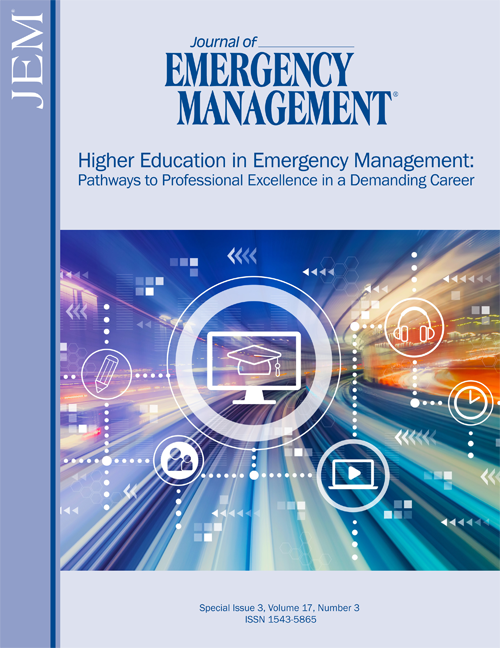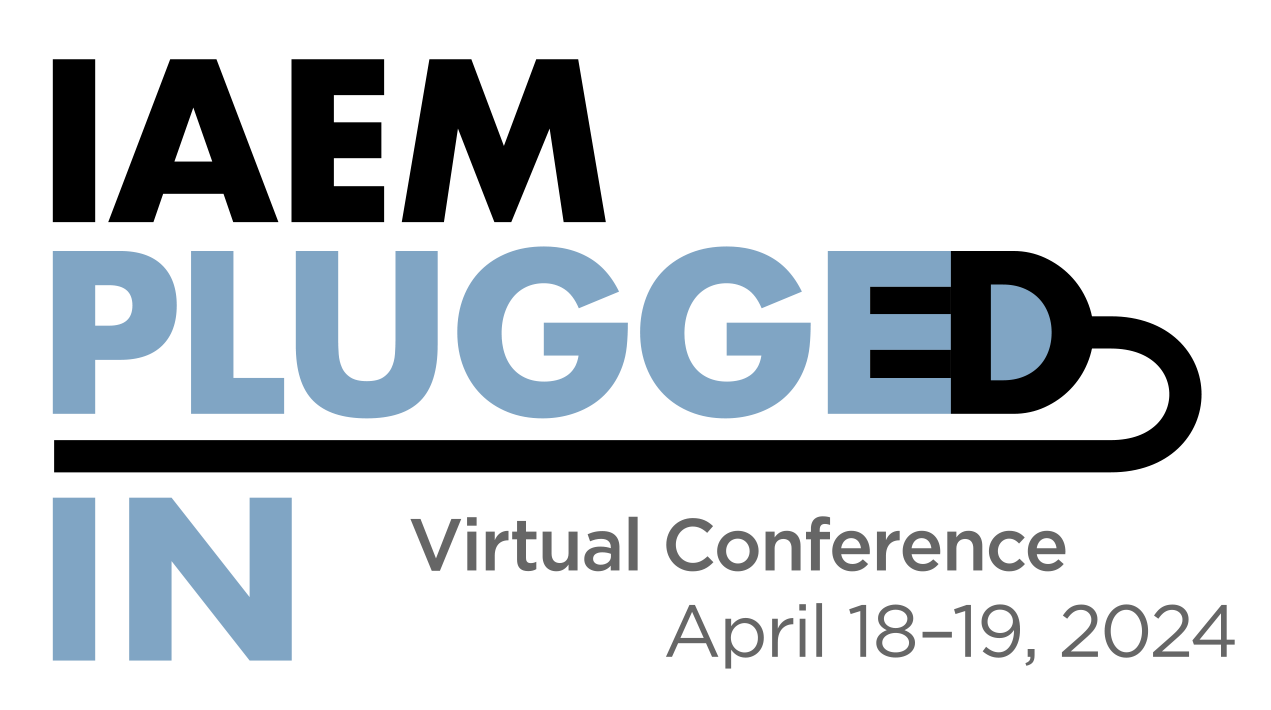The legitimacy challenge facing Emergency Management: Learning from the public administration experience
DOI:
https://doi.org/10.5055/jem.2019.0415Keywords:
legitimacy, Emergency Management, public administrationAbstract
The following article discusses the identity challenge facing Emergency Management, and draws upon the experience of Public Administration to guide future developments in this area. The article undertakes a four-part analysis by discussing: (1) the legitimacy of Public Administration discipline; (2) the legitimacy of the Emergency Management discipline; (3) the legitimacy of the Public Administration profession; and (4) the legitimacy of the Emergency Management profession. The article concludes with a review of the discussion, and argues that Emergency Management has followed or benefited from the same path taken by Public Administration. However, Emergency Management must focus more on a code of ethics, particularly in reference to hiring practices and enforcement of professional values.
References
Phillips BD, Neal DM, Webb GR: Planning. Introduction to Emergency Management. Boca Raton, FL: CRC Press, Taylor & Francis Group, 2012: 215-244.
Shafritz JM, Russell EW, Borick CP: Leadership. Introducing Public Administration. 7th ed. New York: Pearson Education, Inc., 2011: 372.
Business Dictionary. What is legitimate power? Definition and meaning. Available at www.businessdictionary.com/definition/legitimate-power.html. Accessed February 14, 2018.
Phillips BD: Disasters by discipline: Necessary dialogue for emergency management education. Paper presented at: Workshop Creating Educational Opportunities for the Hazards Manager of the 21st Century, 2003; Denver, CO. Available at www.training/fema.gov/emiweb/edu/. Accessed February 1, 2018.
Neal DM: Disaster Science and Emergency Management. Oklahoma State University, 2. Available at https:cpb-us-w2.wpmucdn.com/sites.udel/dist/1/850/files/2014. Accessed February 5, 2018.
Neal DM: Disaster Science and Emergency Management. Oklahoma State University, 3. Available at https:cpb-us-w2.wpmucdn.com/sites/udel/dist/1/850/files/2014. Accessed February 5, 2018.
McEntire DA, Fuller C, Johnston CW, et al.: A comparison of disaster paradigms: The search for a holistic policy guide. Public Adm Rev. 2002; 62(3): 267-281.
Shafritz JM, Russell EW, Borick CP: The evolution of management and organization theory. Introducing Public Administration. 7th ed. New York: Pearson Education, Inc., 2011: 249.
Urby H, McEntire DA: Applying public administration in emergency management: The importance of integrating management into disaster education. J Homel Secur Emerg Manag. 2014; 11(1): 39-60.
Shafritz JM, Russell EW, Borick CP: Defining public administration. Introducing Public Administration. 7th ed. New York: Pearson Education, Inc., 2011: 24.
Denhardt RB, Denhardt JV: Designing and managing organizations. Public Administration: An Action Orientation. 5th ed. Belmont, CA: Thompson-Wadsworth, 2006: 178.
Meier KT, Bohte J: Tatom D (ed.): The structure of American bureaucracy. Politics and the Bureaucracy: Policymaking in the Fourth Branch of Government. 5th ed. Belmont, CA: Cengage Learning, 2006: 29.
Frederickson HG, Smith KB: Conclusion: A bright future for theory? The Public Administration Theory Primer. Boulder, CO: Westwood Press, 2003: 229-247.
Kettl DF: Foundations of reform. The Global Public Management Revolution. 2nd ed. Washington, DC: Brookings Institution, 2005: 1-10. Available at http://www.brookings.edu. Accessed November 25, 2018.
Kapucu N, Ozerdem A: Disaster response and recovery. Managing Emergencies and Crises. Burlington, MA: Jones & Bartlett, 2013: 63.
McEntire DA: Disaster Response and Recovery. Hoboken, NJ: John Wiley & Sons, 2007.
Denhardt RB, Denhardt JV: Personal and leadership skills in public management. Public Administration: An Action Orientation. 5th ed. Belmont, CA: Thompson-Wadsworth, 2006.
Denhardt RB, Denhardt JV: Personal and leadership skills in public management. Public Administration: An Action Orientation. 5th ed. Belmont, CA: Thompson-Wadsworth, 2006: 354.
Wisner B, Blaikie P, Cannon T, et al.: At Risk: Natural Hazards, People’s Vulnerability, and Disasters. 2nd ed. New York, NY: Rutledge, 2004.
Carr-Saunders AM, Wilson PA: The Professions. Oxford: The Clarendon Press, 1933.
FEMA: Principles of Emergency Management, EM Roundtable. 2007. Available at www.training.fema.gov/emi/emiweb/edu/. Accessed February 15, 2018.
Emergency Management Higher Education: Abstract presentation of Wayne Blanchard, PhD, CEM (A Power Point Presentation or Rich Text Format (rtf). Available at www.training.fema.gov/emi/emiweb/edu/. Accessed February 15, 2018.
Feldman-Jensen S, Jensen S, Smith SM: The Next Generation Core Competencies for Emergency Management Professionals: Handbook of Behavior Anchors and Key Actions for Measurement. Emmitsburg, MD: FEMA Emergency Management Institute, 2017.
Published
How to Cite
Issue
Section
License
Copyright 2007-2023, Weston Medical Publishing, LLC and Journal of Emergency Management. All Rights Reserved








